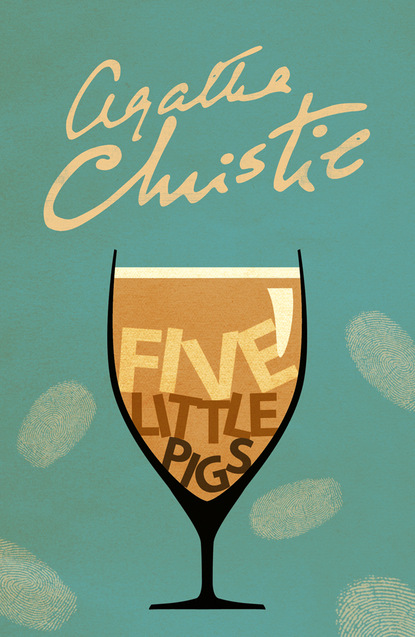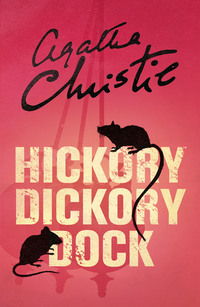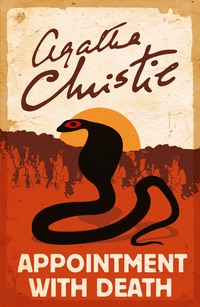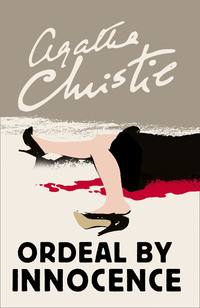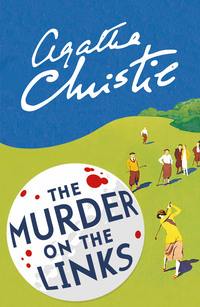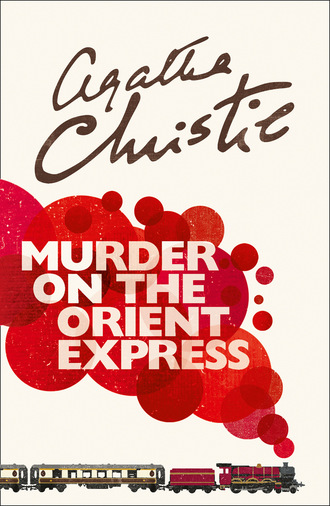
Полная версия
Murder on the Orient Express
‘You are fanciful, mon vieux,’ said M. Bouc.
‘It may be so. But I could not rid myself of the impression that evil had passed me by very close.’
‘That respectable American gentleman?’
‘That respectable American gentleman.’
‘Well,’ said M. Bouc cheerfully. ‘It may be so. There is much evil in the world.’
At that moment the door opened and the concierge came towards them. He looked concerned and apologetic.
‘It is extraordinary, Monsieur,’ he said to Poirot. ‘There is not one first-class sleeping berth to be had on the train.’
‘Comment?’ cried M. Bouc. ‘At this time of year? Ah, without doubt there is some party of journalists—of politicians—?’
‘I don’t know, sir,’ said the concierge, turning to him respectfully. ‘But that’s how it is.’
‘Well, well,’ M. Bouc turned to Poirot. ‘Have no fear, my friend. We will arrange something. There is always one compartment—the No. 16, which is not engaged. The conductor sees to that!’ He smiled, then glanced up at the clock. ‘Come,’ he said, ‘it is time we started.’
At the station M. Bouc was greeted with respectful empressement by the brown-uniformed Wagon Lit conductor.
‘Good-evening, Monsieur. Your compartment is the No. 1.’
He called to the porters and they wheeled their load half-way along the carriage on which the tin plates proclaimed its destination:
ISTANBUL TRIESTE CALAIS
‘You are full up tonight, I hear?’
‘It is incredible, Monsieur. All the world elects to travel tonight!’
‘All the same, you must find room for this gentleman here. He is a friend of mine. He can have the No. 16.’
‘It is taken, Monsieur.’
‘What? The No. 16?’
A glance of understanding passed between them, and the conductor smiled. He was a tall, sallow man of middle age.
‘But yes, Monsieur. As I told you, we are full—full—everywhere.’
‘But what passes itself?’ demanded M. Bouc angrily. ‘There is a conference somewhere? It is a party?’
‘No, Monsieur. It is only chance. It just happens that many people have elected to travel tonight.’
M. Bouc made a clicking sound of annoyance.
‘At Belgrade,’ he said, ‘there will be the slip coach from Athens. There will also be the Bucharest-Paris coach—but we do not reach Belgrade until tomorrow evening. The problem is for tonight. There is no second-class berth free?’
‘There is a second-class berth, Monsieur—’
‘Well, then—’
‘But it is a lady’s berth. There is already a German woman in the compartment—a lady’s-maid.’
‘Là, là, that is awkward,’ said M. Bouc.
‘Do not distress yourself, my friend,’ said Poirot. ‘I must travel in an ordinary carriage.’
‘Not at all. Not at all.’ He turned once more to the conductor. ‘Everyone has arrived?’
‘It is true,’ said the man, ‘that there is one passenger who has not yet arrived.’
He spoke slowly with hesitation.
‘But speak then?’
‘No. 7 berth—a second-class. The gentleman has not yet come, and it is four minutes to nine.’
‘Who is it?’
‘An Englishman,’ the conductor consulted his list. ‘A M. Harris.’
‘A name of good omen,’ said Poirot. ‘I read my Dickens. M. Harris, he will not arrive.’
‘Put Monsieur’s luggage in No. 7,’ said M. Bouc. ‘If this M. Harris arrives we will tell him that he is too late—that berths cannot be retained so long—we will arrange the matter one way or another. What do I care for a M. Harris?’
‘As Monsieur pleases,’ said the conductor.
He spoke to Poirot’s porter, directing him where to go.
Then he stood aside the steps to let Poirot enter the train. ‘Tout à fait au bout, Monsieur,’ he called. ‘The end compartment but one.’
Poirot passed along the corridor, a somewhat slow progress, as most of the people travelling were standing outside their carriages.
His polite ‘Pardons’ were uttered with the regularity of clockwork. At last he reached the compartment indicated. Inside it, reaching up to a suitcase, was the tall young American of the Tokatlian.
He frowned as Poirot entered.
‘Excuse me,’ he said. ‘I think you’ve made a mistake.’ Then, laboriously in French, ‘Je crois que vous avez un erreur.’
Poirot replied in English.
‘You are Mr Harris?’
‘No, my name is MacQueen. I—’
But at that moment the voice of the Wagon Lit conductor spoke from over Poirot’s shoulder. An apologetic, rather breathless voice.
‘There is no other berth on the train, Monsieur. The gentleman has to come in here.’
He was hauling up the corridor window as he spoke and began to lift in Poirot’s luggage.
Poirot noticed the apology in his tone with some amusement. Doubtless the man had been promised a good tip if he could keep the compartment for the sole use of the other traveller. However, even the most munificent of tips lose their effect when a director of the company is on board and issues his orders.
The conductor emerged from the compartment, having swung the suit-cases up on to the racks.
‘Voilà Monsieur,’ he said. ‘All is arranged. Yours is the upper berth, the number 7. We start in one minute.’
He hurried off down the corridor. Poirot re-entered the compartment.
‘A phenomenon I have seldom seen,’ he said cheerfully. ‘A Wagon Lit conductor himself puts up the luggage! It is unheard of!’
His fellow traveller smiled. He had evidently got over his annoyance—had probably decided that it was no good to take the matter other than philosophically.
‘The train’s remarkably full,’ he said.
A whistle blew, there was a long, melancholy cry from the engine. Both men stepped out into the corridor.
Outside a voice shouted.
‘En voiture.’
‘We’re off,’ said MacQueen.
But they were not quite off. The whistle blew again.
‘I say, sir,’ said the young man suddenly, ‘if you’d rather have the lower berth—easier, and all that—well, that’s all right by me.’
‘No, no,’ protested Poirot. ‘I would not deprive you—’
‘That’s all right—’
‘You are too amiable—’
Polite protests on both sides.
‘It is for one night only,’ explained Poirot. ‘At Belgrade—’
‘Oh, I see. You’re getting out at Belgrade—’
‘Not exactly. You see—’
There was a sudden jerk. Both men swung round to the window, looking out at the long, lighted platform as it slid slowly past them.
The Orient Express had started on its three-days’ journey across Europe.
Chapter 3
Poirot Refuses a Case
M. Hercule Poirot was a little late in entering the luncheon-car on the following day. He had risen early, breakfasted almost alone, and had spent the morning going over the notes of the case that was recalling him to London. He had seen little of his travelling companion.
M. Bouc, who was already seated, gesticulated a greeting and summoned his friend to the empty place opposite him. Poirot sat down and soon found himself in the favoured position of the table which was served first and with the choicest morsels. The food, too, was unusually good.
It was not till they were eating a delicate cream cheese that M. Bouc allowed his attention to wander to matters other than nourishment. He was at the stage of a meal when one becomes philosophic.
‘Ah!’ he sighed. ‘If I had but the pen of a Balzac! I would depict this scene.’
He waved his hand.
‘It is an idea, that,’ said Poirot.
‘Ah, you agree? It has not been done, I think? And yet—it lends itself to romance, my friend. All around us are people, of all classes, of all nationalities, of all ages. For three days these people, these strangers to one another, are brought together. They sleep and eat under one roof, they cannot get away from each other. At the end of three days they part, they go their several ways, never, perhaps, to see each other again.’
‘And yet,’ said Poirot, ‘suppose an accident—’
‘Ah no, my friend—’
‘From your point of view it would be regrettable, I agree. But nevertheless let us just for one moment suppose it. Then, perhaps, all these here are linked together—by death.’
‘Some more wine,’ said M. Bouc, hastily pouring it out. ‘You are morbid, mon cher. It is, perhaps, the digestion.’
‘It is true,’ agreed Poirot, ‘that the food in Syria was not, perhaps, quite suited to my stomach.’
He sipped his wine. Then, leaning back, he ran his eye thoughtfully round the dining-car. There were thirteen people seated there and, as M. Bouc had said, of all classes and nationalities. He began to study them.
At the table opposite them were three men. They were, he guessed, single travellers graded and placed there by the unerring judgment of the restaurant attendants. A big, swarthy Italian was picking his teeth with gusto. Opposite him a spare, neat Englishman had the expressionless disapproving face of the well-trained servant. Next to the Englishman was a big American in a loud suit—possibly a commercial traveller.
‘You’ve got to put it over big,’ he was saying in a loud nasal voice.
The Italian removed his toothpick to gesticulate with it freely.
‘Sure,’ he said. ‘That whatta I say alla de time.’
The Englishman looked out of the window and coughed.
Poirot’s eye passed on.
At a small table, sitting very upright, was one of the ugliest old ladies he had ever seen. It was an ugliness of distinction—it fascinated rather than repelled. She sat very upright. Round her neck was a collar of very large pearls which, improbable though it seemed, were real. Her hands were covered with rings. Her sable coat was pushed back on her shoulders. A very small expensive black toque was hideously unbecoming to the yellow, toad-like face beneath it.
She was speaking now to the restaurant attendant in a clear, courteous but completely autocratic tone.
‘You will be sufficiently amiable to place in my compartment a bottle of mineral water and a large glass of orange juice. You will arrange that I shall have chicken cooked without sauces for dinner this evening—also some boiled fish.’
The attendant replied respectfully that it should be done.
She gave a slight gracious nod of the head and rose. Her glance caught Poirot’s and swept over him with the nonchalance of the uninterested aristocrat.
‘That is Princess Dragomiroff,’ said M. Bouc in a low tone. ‘She is a Russian. Her husband realized all this money before the Revolution and invested it abroad. She is extremely rich. A cosmopolitan.’
Poirot nodded. He had heard of Princess Dragomiroff.
‘She is a personality,’ said M. Bouc. ‘Ugly as sin, but she makes herself felt. You agree?’
Poirot agreed.
At another of the large tables Mary Debenham was sitting with two other women. One of them was a tall middle-aged woman in a plaid blouse and tweed skirt. She had a mass of faded yellow hair unbecomingly arranged in a large bun, wore glasses, and had a long, mild, amiable face rather like a sheep. She was listening to the third woman, a stout, pleasant-faced, elderly woman who was talking in a slow clear monotone which showed no signs of pausing for breath or coming to a stop.
‘…And so my daughter said, “Why,” she said “you just can’t apply Amurrican methods in this country. It’s just natural to the folks here to be indolent,” she said. “They just haven’t got any hustle in them.” But all the same you’d be surprised to know what our college there is doing. They’ve gotten a fine staff of teachers. I guess there’s nothing like education. We’ve got to apply our Western ideals and teach the East to recognize them. My daughter says—’
The train plunged into a tunnel. The calm monotonous voice was drowned.
At the next table, a small one, sat Colonel Arbuthnot—alone. His gaze was fixed upon the back of Mary Debenham’s head. They were not sitting together. Yet it could easily have been managed. Why?
Perhaps, Poirot thought, Mary Debenham had demurred. A governess learns to be careful. Appearances are important. A girl with her living to get has to be discreet.
His glance shifted to the other side of the carriage. At the far end, against the wall, was a middle-aged woman dressed in black with a broad expressionless face. German or Scandinavian, he thought. Probably a German lady’s-maid.
After her came a couple leaning forward and talking animatedly together. The man wore English clothes of loose tweed—but he was not English. Though only the back of his head was visible to Poirot, the shape of it and the set of the shoulders betrayed him. A big man, well made. He turned his head suddenly and Poirot saw his profile. A very handsome man of thirty odd with a big fair moustache.
The woman opposite him was a mere girl—twenty at a guess. A tight-fitting little black coat and skirt, white satin blouse, small chic black toque perched at the fashionable outrageous angle. She had a beautiful foreign-looking face, dead white skin, large brown eyes, jet-black hair. She was smoking a cigarette in a long holder. Her manicured hands had deep red nails. She wore one large emerald set in platinum. There was coquetry in her glance and voice.
‘Elle est jolie—et chic,’ murmured Poirot. ‘Husband and wife—eh?’
M. Bouc nodded.
‘Hungarian Embassy, I believe,’ he said. ‘A handsome couple.’
There were only two more lunchers—Poirot’s fellow traveller MacQueen and his employer Mr Ratchett. The latter sat facing Poirot, and for the second time Poirot studied that unprepossessing face, noting the false benevolence of the brow and the small, cruel eyes.
Doubtless M. Bouc saw a change in his friend’s expression.
‘It is at your wild animal you look?’ he asked.
Poirot nodded.
As his coffee was brought to him, M. Bouc rose to his feet. Having started before Poirot, he had finished some time ago.
‘I return to my compartment,’ he said. ‘Come along presently and converse with me.’
‘With pleasure.’
Poirot sipped his coffee and ordered a liqueur. The attendant was passing from table to table with his box of money, accepting payment for bills. The elderly American lady’s voice rose shrill and plaintive.
‘My daughter said, “Take a book of food tickets and you’ll have no trouble—no trouble at all.” Now, that isn’t so. Seems they have to have a ten per cent. tip, and then there’s that bottle of mineral water—and a queer sort of water too. They hadn’t got any Evian or Vichy, which seems queer to me.’
‘It is—they must—how you say—serve the water of the country,’ explained the sheep-faced lady.
‘Well, it seems queer to me.’ She looked distastefully at the heap of small change on the table in front of her. ‘Look at all this peculiar stuff he’s given me. Dinars or something. Just a lot of rubbish, it looks. My daughter said—’
Mary Debenham pushed back her chair and left with a slight bow to the other two. Colonel Arbuthnot got up and followed her. Gathering up her despised money, the American lady followed suit, followed by the lady like a sheep. The Hungarians had already departed. The restaurant-car was empty save for Poirot and Ratchett and MacQueen.
Ratchett spoke to his companion, who got up and left the car. Then he rose himself, but instead of following MacQueen he dropped unexpectedly into the seat opposite Poirot.
‘Can you oblige me with a light?’ he said. His voice was soft—faintly nasal. ‘My name is Ratchett.’
Poirot bowed slightly. He slipped his hand into his pocket and produced a matchbox which he handed to the other man, who took it but did not strike a light.
‘I think,’ he went on, ‘that I have the pleasure of speaking to M. Hercule Poirot. Is that so?’
Poirot bowed again.
‘You have been correctly informed, Monsieur.’
The detective was conscious of those strange shrewd eyes summing him up before the other spoke again.
‘In my country,’ he said, ‘we come to the point quickly. Mr Poirot, I want you to take on a job for me.’
Hercule Poirot’s eyebrows went up a trifle.
‘My clientèle, Monsieur, is limited nowadays. I undertake very few cases.’
‘Why, naturally, I understand that. But this, Mr Poirot, means big money.’ He repeated again in his soft, persuasive voice, ‘Big money.’
Hercule Poirot was silent a minute or two, then he said:
‘What is it you wish me to do for you, M.—er—Ratchett?’
‘Mr Poirot, I am a rich man—a very rich man. Men in that position have enemies. I have an enemy.’
‘Only one enemy?’
‘Just what do you mean by that question?’ asked Ratchett sharply.
‘Monsieur, in my experience when a man is in a position to have, as you say, enemies, then it does not usually resolve itself into one enemy only.’
Ratchett seemed relieved by Poirot’s answer. He said quickly:
‘Why, yes, I appreciate that point. Enemy or enemies—it doesn’t matter. What does matter is my safety.’
‘Safety?’
‘My life has been threatened, Mr Poirot. Now, I’m a man who can take pretty good care of himself.’ From the pocket of his coat his hand brought a small automatic into sight for a moment. He continued grimly. ‘I don’t think I’m the kind of man to be caught napping. But as I look at it I might as well make assurance doubly sure. I fancy you’re the man for my money, Mr Poirot. And remember—big money.’
Poirot looked at him thoughtfully for some minutes. His face was completely expressionless. The other could have had no clue as to what thoughts were passing in that mind.
‘I regret, Monsieur,’ he said at length. ‘I cannot oblige you.’
The other looked at him shrewdly.
‘Name your figure, then,’ he said.
Poirot shook his head.
‘You do not understand, Monsieur. I have been very fortunate in my profession. I have made enough money to satisfy both my needs and my caprices. I take now only such cases as—interest me.’
‘You’ve got a pretty good nerve,’ said Ratchett. ‘Will twenty thousand dollars tempt you?’
‘It will not.’
‘If you’re holding out for more, you won’t get it. I know what a thing’s worth to me.’
‘I also—M. Ratchett.’
‘What’s wrong with my proposition?’
Poirot rose.
‘If you will forgive me for being personal—I do not like your face, M. Ratchett,’ he said.
And with that he left the restaurant car.
Chapter 4
A Cry in the Night
The Simplon Orient Express arrived at Belgrade at a quarter to nine that evening. It was not due to depart again until 9.15, so Poirot descended to the platform. He did not, however, remain there long. The cold was bitter and though the platform itself was protected, heavy snow was falling outside. He returned to his compartment. The conductor, who was on the platform stamping his feet and waving his arms to keep warm, spoke to him.
‘Your valises have been moved, Monsieur, to the compartment No. 1, the compartment of M. Bouc.’
‘But where is M. Bouc, then?’
‘He has moved into the coach from Athens which has just been put on.’
Poirot went in search of his friend. M. Bouc waved his protestations aside.
‘It is nothing. It is nothing. It is more convenient like this. You are going through to England, so it is better that you should stay in the through coach to Calais. Me, I am very well here. It is most peaceful. This coach is empty save for myself and one little Greek doctor. Ah! my friend, what a night! They say there has not been so much snow for years. Let us hope we shall not be held up. I am not too happy about it, I can tell you.’
At 9.15 punctually the train pulled out of the station, and shortly afterwards Poirot got up, said good-night to his friend and made his way along the corridor back into his own coach which was in front next to the dining-car.
On this, the second day of the journey, barriers were breaking down. Colonel Arbuthnot was standing at the door of his compartment talking to MacQueen.
MacQueen broke off something he was saying when he saw Poirot. He looked very surprised.
‘Why,’ he cried, ‘I thought you’d left us. You said you were getting off at Belgrade.’
‘You misunderstood me,’ said Poirot, smiling. ‘I remember now, the train started from Stamboul just as we were talking about it.’
‘But, man, your baggage—it’s gone.’
‘It has been moved into another compartment—that is all.’
‘Oh, I see.’
He resumed his conversation with Arbuthnot and Poirot passed on down the corridor.
Two doors from his own compartment, the elderly American lady, Mrs Hubbard, was standing talking to the sheep-like lady who was a Swede. Mrs Hubbard was pressing a magazine on the other.
‘No, do take it, my dear,’ she said. ‘I’ve got plenty other things to read. My, isn’t the cold something frightful?’ She nodded amicably to Poirot.
‘You are most kind,’ said the Swedish lady.
‘Not at all. I hope you’ll sleep well and that your head will be better in the morning.’
‘It is the cold only. I make now myself a cup of tea.’
‘Have you got some aspirin? Are you sure, now? I’ve got plenty. Well, good-night, my dear.’
She turned to Poirot conversationally as the other woman departed.
‘Poor creature, she’s a Swede. As far as I can make out, she’s a kind of missionary—a teaching one. A nice creature, but doesn’t talk much English. She was most interested in what I told her about my daughter.’
Poirot, by now, knew all about Mrs Hubbard’s daughter. Everyone on the train who could understand English did! How she and her husband were on the staff of a big American college in Smyrna and how this was Mrs Hubbard’s first journey to the East, and what she thought of the Turks and their slipshod ways and the condition of their roads.
The door next to them opened and the thin, pale manservant stepped out. Inside Poirot caught a glimpse of Mr Ratchett sitting up in bed. He saw Poirot and his face changed, darkening with anger. Then the door was shut.
Mrs Hubbard drew Poirot a little aside.
‘You know, I’m dead scared of that man. Oh, not the valet—the other—his master. Master, indeed! There’s something wrong about that man. My daughter always says I’m very intuitive. “When Momma gets a hunch, she’s dead right,” that’s what my daughter says. And I’ve got a hunch about that man. He’s next door to me, and I don’t like it. I put my grips against the communicating door last night. I thought I heard him trying the handle. Do you know, I shouldn’t be surprised if that man turns out to be a murderer—one of these train robbers you read about. I dare say I’m foolish, but there it is. I’m downright scared of the man! My daughter said I’d have an easy journey, but somehow I don’t feel happy about it. It may be foolish, but I feel anything might happen. Anything at all. And how that nice young fellow can bear to be his secretary I can’t think.’
Colonel Arbuthnot and MacQueen were coming towards them down the corridor.
‘Come into my carriage,’ MacQueen was saying. ‘It isn’t made up for the night yet. Now what I want to get right about your policy in India is this—’
The men passed and went on down the corridor to MacQueen’s carriage.
Mrs Hubbard said good-night to Poirot.
‘I guess I’ll go right to bed and read,’ she said. ‘Good-night.’
‘Good-night, Madame.’
Poirot passed into his own compartment, which was the next one beyond Ratchett’s. He undressed and got into bed, read for about half an hour and then turned out the light.
He awoke some hours later, and awoke with a start. He knew what it was that had wakened him—a loud groan, almost a cry, somewhere close at hand. At the same moment the ting of a bell sounded sharply.
Poirot sat up and switched on the light. He noticed that the train was at a standstill—presumably at a station.
That cry had startled him. He remembered that it was Ratchett who had the next compartment. He got out of bed and opened the door just as the Wagon Lit conductor came hurrying along the corridor and knocked on Ratchett’s door. Poirot kept his door open a crack and watched. The conductor tapped a second time. A bell rang and a light showed over another door farther down. The conductor glanced over his shoulder.




